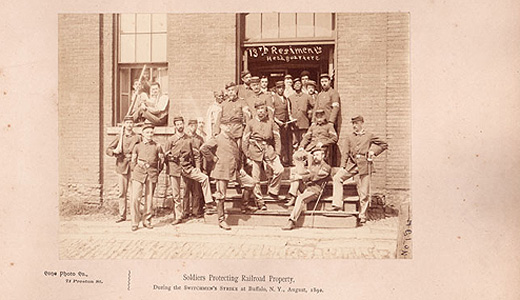
On this day in 1892 railroad workers in Buffalo, New York, went on strike for two weeks.
The job action was prompted when railroads companies refused to abide by a bill passed by the New York state legislature mandating a ten-hour workday and increased minimum wages. Switchmen working on three railroads struck in protest.
Several thousands troops, along with the wide use of scab labor were used to break the job action. Company violence against workers resulted in arson and mass arrests.
The switchmen’s strike was rich in class struggle lessons: It was one of the first work stoppages to attempt coordinated actions. In its aftermath Eugene Debs initiated the American Railway Union in 1893 that later collapsed after the Pullman strike. Class-consciousness and an awareness of government’s pro-corporate bias grew. As a result, Debs and others gravitated to socialism.
Photo: “Soldiers Protecting Railroad Property” todayinlaborhistory.wordpress.com/












Comments